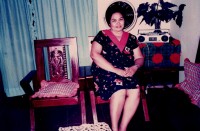(Young Voices Speak is eaglenews.ph’s blank space for the youth to share their opinions, views, and perspective on any topic, issue, or matter)
QUEZON City, Philippines – Bullying. The problem has been existing for a long time now. Disturbingly, instances of bullying have become more frequent nowadays because of the creation of new media like the internet and text messaging.
Bullying is not limited to the use of actions. One can also use words to bully others. Words can be sharper than a knife. Words don’t hurt the body itself. They hurt the heart and that is most suffocating.
The school is the second home of every student. But how can it be called a home if there is no comfort? Bullying has now become a trend, especially in schools, to gain popularity. Those kids hit the ones who look weak and fragile so those who can see will start to be afraid of them and want to be one of them.
Teenagers always want to belong. They always want to fit in. When they are bullied, they feel that they are alone and everyone is against them. That’s why they feel more desperate and depressed as the bullying goes on. Bullying is not a one-time event, it’s not an occasional event. It happens everytime, everywhere, in any occasion with the same person.
One’s reputation is always harmed when one is being bullied and this can also be considered as an abuse. Teenagers are usually not psychologically and emotionally mature enough to handle the feeling and repercussion of having a damaged reputation. The victims of bullying always feel suffocated about the reputation that the bullies have given to them and always feel that they may never escape from it.
Parents should be the first ones to take action. They should be alarmed and know their children in school and how they feel.
Everyone should do their part.
We must all be brave, walk straight.
Let us not be afraid. Let us stand up against bullying.
 Rocelle Charlene Magcalas, a 4th year BA Communication student at New Era University. Loves writing novels during her past time.
Rocelle Charlene Magcalas, a 4th year BA Communication student at New Era University. Loves writing novels during her past time.
(edited by Jay Paul Carlos, additional research Vince Villarin)







